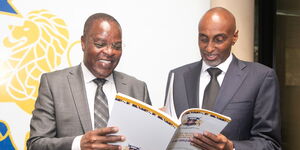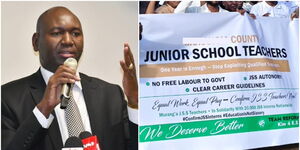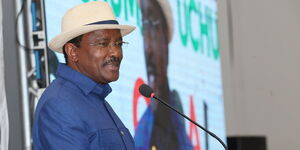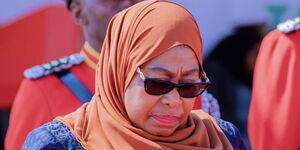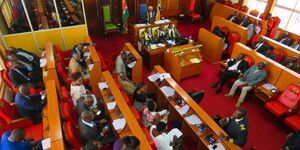The government has been criticised for its handling of the ongoing lecturers’ strike, which has brought learning to a standstill in universities across the country.
On Friday, October 24, Kiharu MP Ndindi Nyoro accused the government of intimidating lecturers instead of engaging with them in dialogue.
He urged the government to honour its commitments under the Collective Bargaining Agreement (CBA) in order to end the crisis in the education sector.
“We do not see the urgency to end the strike, which has crippled learning across institutions. To make matters worse, the government has resorted to threats and intimidation of the union officials, yet what is owed is so little and already signed in the CBA,” he stated.
The legislator demanded that the government release the Ksh7.9 billion owed to the lecturers to facilitate the resumption of normal learning activities.
He accused the government of prioritising political events and public engagements at the expense of crucial sectors such as education.
“We are demanding that the Ksh7.9 billion owed by the government be released. The country is very eager to fund political management and barazas like the ones we have been seeing around in the name of empowerment. We are asking the Ministries of Education and Treasury to stop taking our universities to a circus,” Nyoro added.
He further faulted the government for failing to prioritise education funding, saying that many institutions, including Junior Secondary Schools and high schools, had been forced to close earlier due to non-remittance of capitation funds.
“No one in government seems to be bothered. They need to drop non-priority expenditure. Some of our schools were forced to close early due to delayed capitation. It is important that we bring back education to where it belongs in Kenya,” he said.
The lecturers’ strike, now in its 37th day, has disrupted academic calendars in public universities, with both students and staff calling for urgent intervention to restore normalcy in the sector, even as the blame game continues between the parties.
Earlier this month, lecturers’ efforts to resolve their ongoing strike hit a standstill after the collapse of talks between the government and university staff unions.
The University Academic Staff Union (UASU) Secretary General, Constantine Wesonga, accused the Salaries and Remuneration Commission (SRC) of derailing the talks and frustrating efforts to reach an agreement.
Wesonga, who spoke on behalf of the UASU, KUDHEIHA, and KUSU unions, claimed that the SRC had overstepped its advisory role and was interfering directly in collective bargaining, stating that the commission’s actions had made it impossible for university lecturers to negotiate effectively with their employer.



